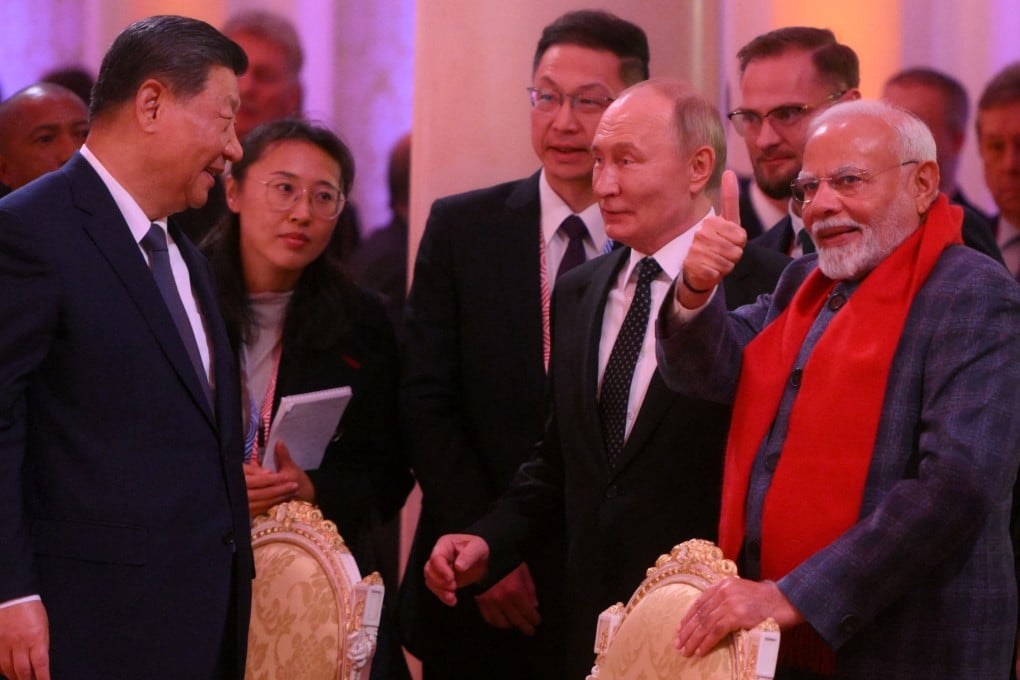India’s ‘non-West, not anti-West’ approach: how New Delhi balances ties amid tensions
As geopolitical tensions rise, India’s diplomatic strategy showcases its emergence as a key player in the shifting global order

Instead of distancing itself from the West, analysts say India is adeptly balancing its relationships with both Western and Asian countries to enhance its economic and geopolitical standing.
The South Asian nation’s historical reliance on foreign partnerships for domestic growth has undergone a remarkable transformation in recent decades, said Professor Sreeradha Datta from the Jindal School of International Affairs
“From the 1970s to 2024 there is a huge difference in terms of capacity India has built for itself,” she said. “Now, everybody is focusing on the Indo-Pacific and Bay of Bengal.”
With a growing economy valued at US$3 trillion, India is now better positioned to assert its influence more effectively, Datta said. “It can certainly ‘walk the talk’ better on the global stage,” she added.
